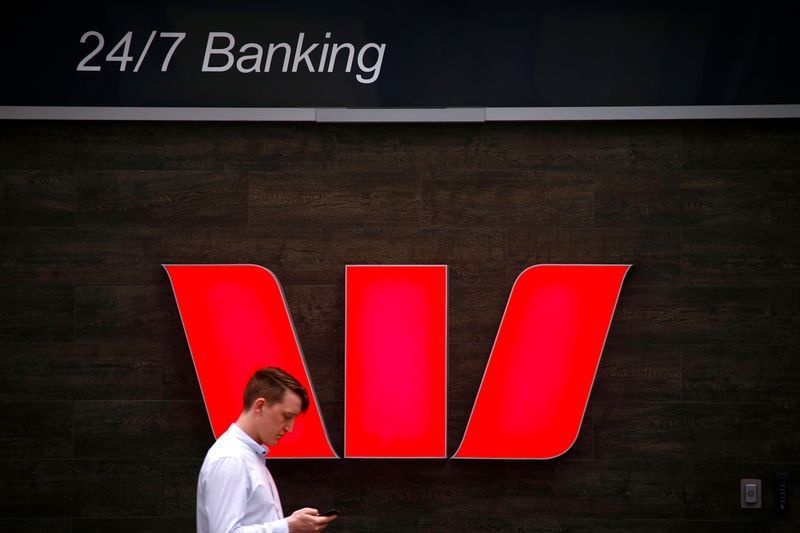By Byron Kaye and Roushni Nair
(Reuters) -Australian No. 2 lender Westpac, said on Monday that annual profit jumped by a quarter as a pickup in business lending and one-off benefits more than made up for a decline at its main mortgage unit, sending the bank's shares higher.
The results show how Australia's retail banks are leaning into businesses outside their traditional earnings engine of mortgages as higher interest rates raise the cost of repayments, spurring competition which has flattened profit margins.
Westpac and others, part of the country's so-called Big Four lenders including Commonwealth Bank, National Australia Bank (OTC:NABZY) and ANZ, resorted to cash handouts to lure borrowers but largely stopped that practice in 2023 saying it amounted to losing profit to gain market share.
Sydney-listed Westpac said profit from its consumer division, which has just over one-fifth of Australian mortgages, shrank 7% in its full-year to end-September. But profit at its smaller business and institutional units surged and the company clocked smaller one-off costs such as losses incurred from sale of assets.
Overall profit jumped 26% to A$7.2 billion ($4.7 billion), roughly in line with analyst forecasts, and Westpac said it would buy back A$1.5 billion of stock, a method companies use to drive demand for their shares.
Its shares were up 3.7% by midsession, helping push the broader market 0.3% higher as analysts welcomed the buyback and Westpac's comments that it had started taking back mortgage customers it lost in the first half.
"Investor disappointment may now have peaked," said E&P Capital analyst Azib Khan in a client note.
"There are signs of improving franchise momentum at the margin with a pickup in home loan growth and business lending growth."
Westpac gave no profit forecasts but said April-to-September trading was "more challenging" than the previous six months and "this is expected to continue into 2024".
Though the bank regained mortgage customers in that period, its net interest margin, a closely-watched metric of interest income from loans minus payouts to deposit account holders, narrowed from 1.9% to 1.84%.
Westpac said its total "stressed" loan exposure rose to 1.26% of its total loan book, from 1.07% in 2022, but remained below historical levels as borrowers prioritise making repayments and as unemployment stays low.
CEO Peter King said the outbreak of war in the Middle East on top of the Ukraine conflict may slow demand but Australia remained at risk of high interest rates for a drawn-out period due to what he called necessary spending on infrastructure, energy transition and housing.
"If that does eventuate, interest rates will probably need to be higher than what we're thinking," he said on a call with analysts and media.
"We've still got a lot of domestic demand to do things that are really important in the economy. We've probably got too much demand."

Westpac declared a final dividend of 72 Australian cents per share, up from 64 Australian cents a year earlier.
($1 = 1.5359 Australian dollars)